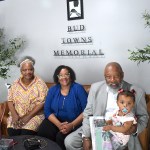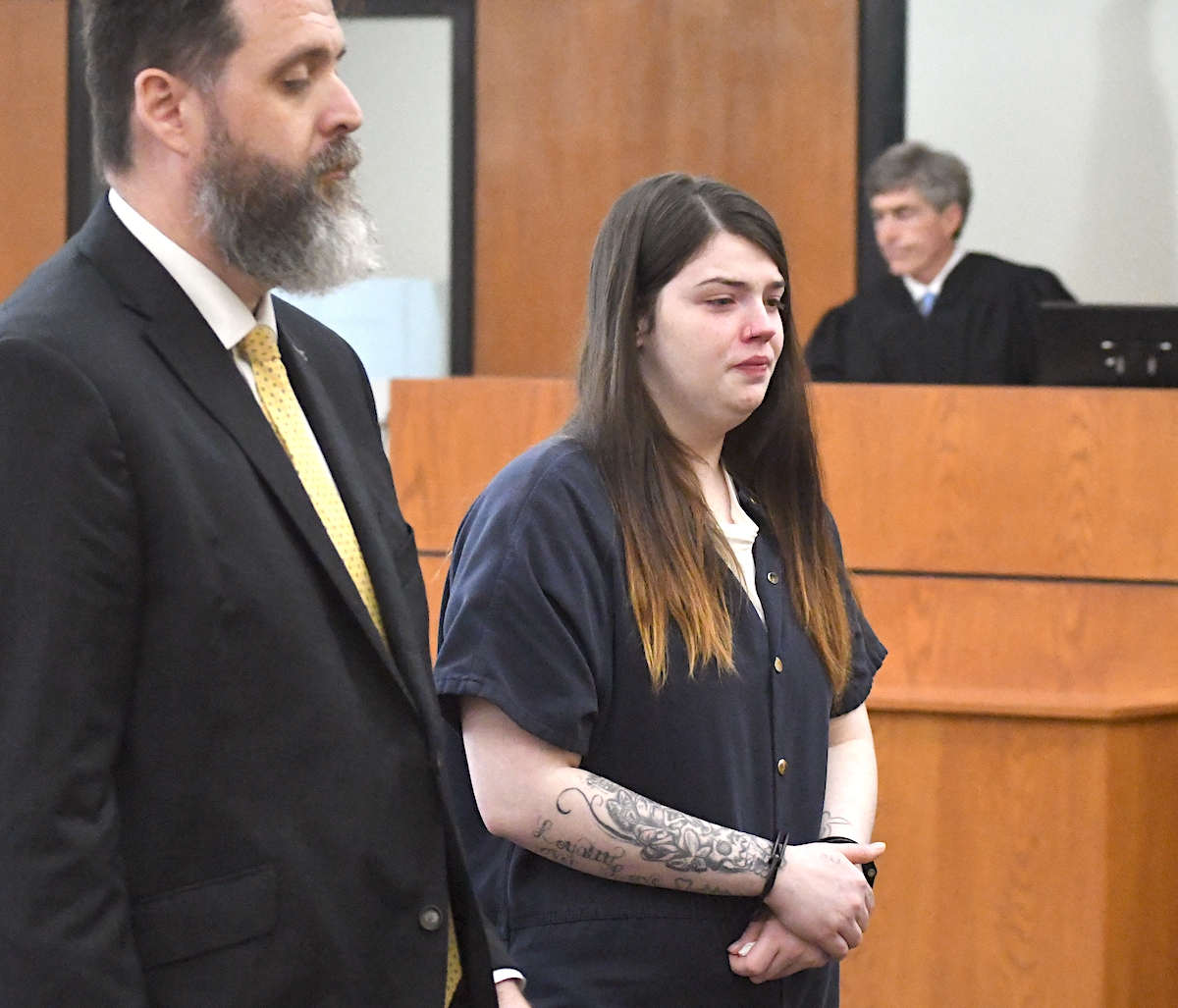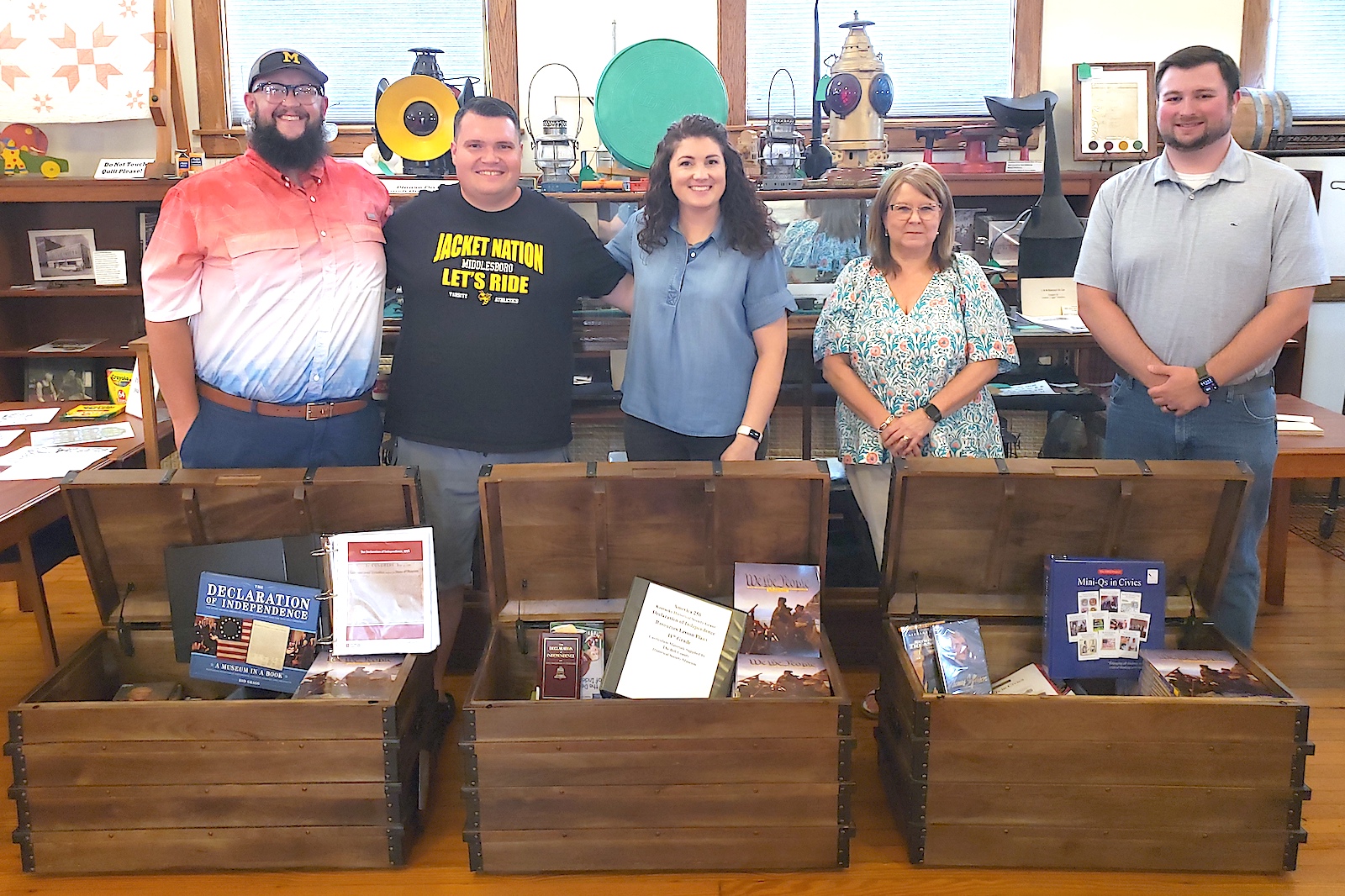PCHC hosts ribbon cutting for Sound Sobriety, dedicates Bud Towns Memorial
Published 9:40 am Thursday, May 30, 2024



Pineville Community Health Center held a soft ribbon cutting ceremony last week to celebrate the coming opening of the Sound Sobriety drug rehabilitation center and other new services. The hospital also used the occasion to dedicate the Bud Towns Memorial in the loft overlooking the lobby.
PCHC CEO Michael Frey was joined by his wife Natalie, fellow members of the hospital’s ownership group Dennis Fragazee and Cheryl Richter, Tyler Stapp, Struggle Jennings, Fred Dulay, Dr. Nick Fugate, Judge-Executive Albey Brock, State Rep. Adam Bowling, and Donna McClure the field representative for Sen. Mitch McConnell.
Frey first became involved with the Pineville Hospital under a previous administration but backed away when that group’s vision didn’t match his own.
Trending
“My wife and I always had this place in our heart. We kept saying Pineville was where this could be a huge opportunity — I don’t mean a financial opportunity, there’s a long way to go before we ever realize any of that and we knew that going in,” he said. “What we did was look at this hospital and look at this community and said, ‘what does the community need?’ We want to address Bell County and Pineville and fix what’s broken here and we’re off to a good start.”
He thanked Libby Chaney for her work designing the look of the renovated lobby and spoke about having the community involved in every aspect of the hospital.
“Yes, there are new specialties coming in and as a matter of fact we just hired a new orthopedic surgeon. . . It doesn’t stop there, there are numerous specialties that we’re going to bring in that this community needs,” Frey said. “We have an infusion clinic that’s getting ready to start, a diabetic care clinic that’s getting ready to start, a wellness clinic, we have all these things teed up.”
He said the hospital was a big building and there were plans to utilize every square inch of it. The nursing home was recently reopened and is operating at full capacity.
“Our plan over the next 24 months is going to add approximately 300 new employees to our hospital. That’s huge,” Frey said.
Work is well underway on the drug rehab clinic Sound Sobriety. Frey spoke about the unique program.
Trending
“It’s probably the most unique rehabilitation program that you’ve ever heard of,” he said in introducing Struggle Jennings. “We sat down with him and before we even got done with our pitch, Struggle said I’m in. After I heard his testimony and what this man has been through, I’ve almost got to tear up about it because I’m pulling for him so hard.”
Jennings said he loved seeing the passion that the Freys and everyone else involved has for the hospital and the community.
“What we’re about to do is going to change lives and I’m ready for it, so happy for it. Y’all are in one of the regions that has the largest problem per capita in drug addiction and the Fentanyl crisis. We want to fight it head on and we thought this was the best place to start,” he said. “They came to me with the idea, they said they had the space and wanted to do something cool. I said let’s do it better than anybody’s done it. So we started Sound Sobriety.”
He said Sound Sobriety will include a detox program, a 28-day in-patient program and an aftercare program and shared a little of his personal story.
“I did five years in prison, came home eight years ago and my children were in Foster care. The mother of my children was fighting addiction and she lost that battle. We’ve rebuilt my family brick-by-brick,” Jennings said. “They’re a bunch of survivors and they’ve given me strength and hope with their perseverance and what they were able to endure during those times.”
Jennings said his daughter, Innocence, had every reason and every excuse to follow the same path that her mother or her father did, but she chose differently and everybody has that same choice.
“We’re going to be here to help people make that choice and help this community rebuild. I’m so excited about it,” he said. “I’ve got so many friends in the music industry that are already lined up — Jellyroll, Brantley Gilbert, all my friends are passionate about it.”
Jennings said music was his therapy and music will play a big role in Sound Sobriety.
“I know that everybody has a story to tell. So for everybody that comes through our program we’re going to have songwriting classes, we’re going to have big artists to come in and talk, listen, teach,” he said. “Everybody who leaves our program and graduates will have a BMI number and will be a registered songwriter with a direct line to pitch their songs.”
Jennings added that meeting the people of Pineville made it clear to him that this was the place to start the Sound Sobriety program.
“I’ve been to Pineville about four or five times now and everybody that I meet just has a different soul. They just have a light inside of them regardless of what they’ve been through, regardless of what they’re dealing with. I think there’s a lot of strength and hope in this community and we want to help add to that, we want to help build that and we want to bring this city to its best place,” he said. “We love y’all and we’re here for the long haul. We want to do a lot of these facilities all across the country, but it’s starting here. This is one we’re attacking. We want to take the inspiration and hope that we get from Pineville and spread it across the country.”
Nationally known boxing coach Fred Dulay spoke about starting a youth program at the hospital.
“I’m super excited about our youth program that’s going to work alongside Sound Sobriety. Our goal is to provide that fluid curriculum that will help give direction and prepare the youth to move in a motivated and productive life,” he said. “Our community center will be a place they can go for a positive influence and much more than that. It will develop a culture of family, tough love, accountability and recognition.”
It will include boxing classes as well as art and music programs, a mechanical program, a life skills program and help kids prepare for college or trade school.
Bell County Judge-Executive Albey Brock said the hospital means a lot to the community and thanked the owners for striving to build it back up.
“I was born in this hospital, I’ve spent 21 days in ICU in this hospital, I’ve walked out of here before with 65 surgical staples in me. The care I got here was second to none. The staff here was amazing,” he said.
Brock asked the hospital staff how many of them had worked there for 10 years or more.
“I don’t know how you did it. I don’t know how you hung on. The number of times that staff here either didn’t get a check or they got their check and the bank told them it wasn’t any good,” he said. “That’s a lot to go through when you’re trying to feed a family. So I can’t thank you enough for doing that.”
He said the way the hospital succeeds is by the community using it.
“Trust me, if they can’t do it there’ll be a helicopter come here and pick you up or an ambulance to transport you out. Give them a chance, give the Emergency Room a chance,” Brock said. “From what I understand we’ve got one of the best scan machines in southeastern Kentucky. If you’re going to get a scan, why not go somewhere that has the best technology.”
State Rep. Adam Bowling said every time he drives by the hospital he thinks of Dr. Talmadge Hayes and ICU staff that saved his grandfather’s life at least six times as well as the fact that his mother was born at PCHC.
“What a great day. This is a special day for the citizens of Pineville, citizens of Bell County and really this entire region. It cannot be overstated how much this community loves this hospital,” he said. “It’s a living, breathing part of our community. There are a lot of good memories in this hospital and it’s good to see it coming back.”
Dr. Fugate shared the story of Bud Towns, a black coal miner who helped six others survive the Fourmile mine explosion in December of 1945. Those men were all treated at the Pineville Hospital, which was still segregated at the time. When an attempt was made to move Towns from their room, the other miners who could speak raised hoarse shouts to leave him there and that he was the best man there and had saved their lives. Towns died a few months later from respiratory failure
“From that day forward Pineville Hospital was segregated,” Fugate said. “Bud Towns’ leadership during mayhem and his grace under pressure saved six men that day. His actions set a precedent for hospital integration, improving the lives and health of many across the community and likely saving many lives after he had passed away.”
Members of Bud Towns’ family were on hand for the ribbon cutting and were the first to tour the Bud Towns Memorial.









